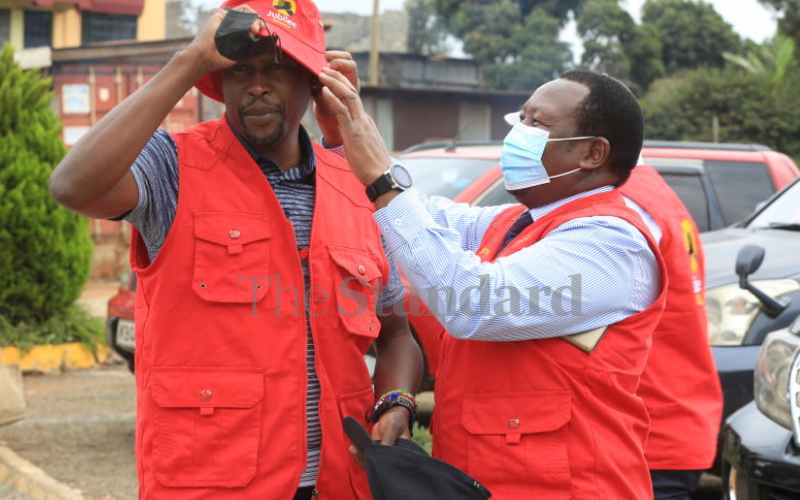×
The Standard e-Paper
Home To Bold Columnists

Jubilee MPs Kanini Kega (left) and Peter Mwathi (Limuru) in Kiambaa. [George Njunge, Standard]
Officially the outcome of Kiambaa Constituency by-election will determine the electoral contest between Jubilee Party’s candidate Kariri Njama and United Democratic Alliance’s candidate John Njuguna on who will fill the vacant seat occasioned by the death of MP Paul Koinange in March.